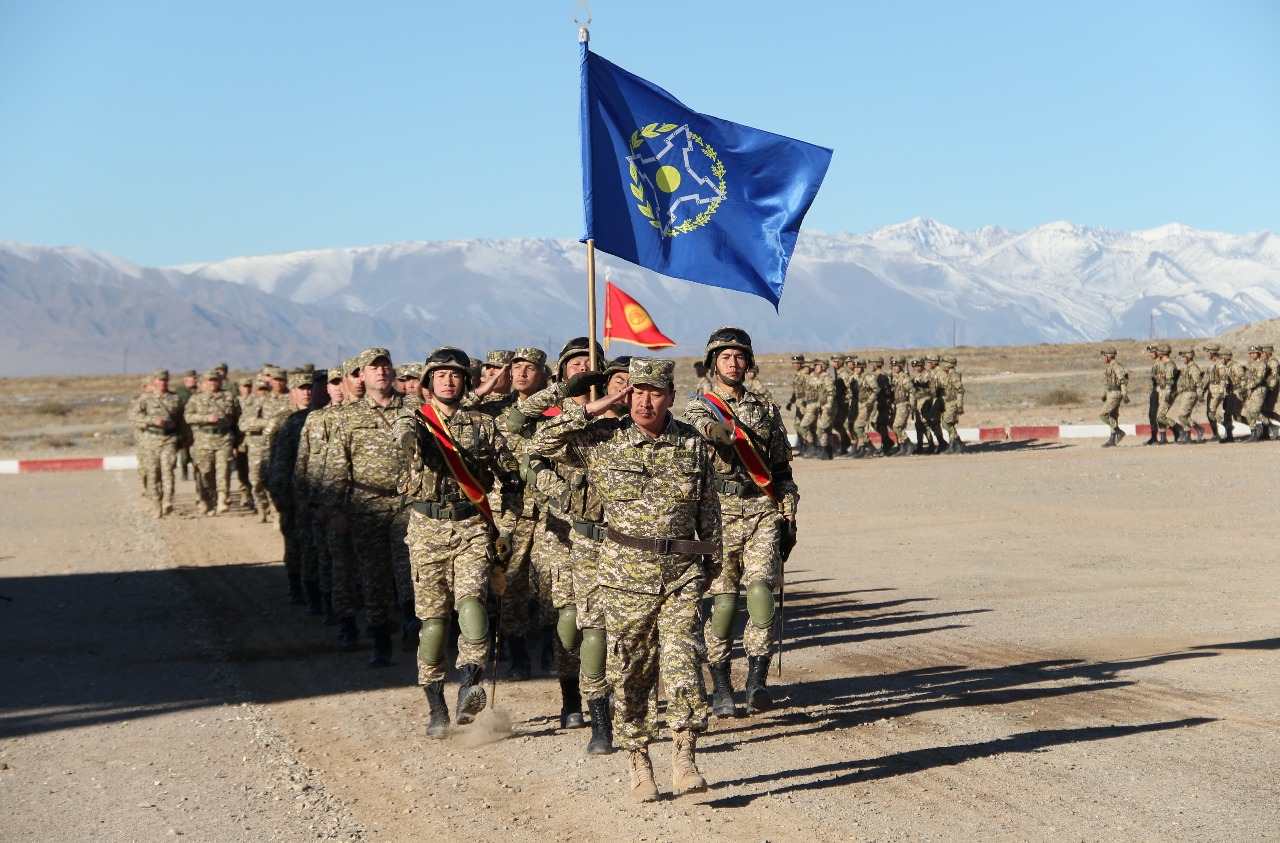An official within the administration of Azerbaijan’s President Ilham Aliyev put an end to speculations about the Caspian country joining the Russian-led military alliance known as the Collective Security Treaty Organization (CSTO).
Hikmet Hajiyev, the head of the foreign policy department within the Presidential Administration of Azerbaijan, said on Monday that there is no such issue on the agenda for the central government in Baku.
“At the moment, Azerbaijan does not consider participating in the CSTO in any form, including as an observer,” Hajiyev said according to Interfax.az.
The news about Azerbaijan’s joining the CSTO alliance made headlines on September 12 when the Acting Secretary General of the organization Valeriy Semerikov made remarks about the possible admission of Azerbaijan as an observer. Semerikov told journalists that any state may express a desire to become a member, observer or partner of CSTO, saying the consensus is required amongst current member states.
Russia’s Deputy Prime Minister Yuri Borisov said the CSTO has no intention of closing its doors to anyone and will always welcome cooperation with all the former republics of the USSR.
The Collective Security Treaty Organization initially included Russia, Armenia, Kazakhstan, Kyrgyzstan, Tajikistan and Uzbekistan when it formed in 1992. A year later Azerbaijan had joined but withdrew by 1999. Today it includes the five founding members, with Uzbekistan having left it, plus Belarus. CSTO identifies collective defense of any member state against external threats as its ultimate duty, while promoting coordinated efforts against terrorist threats, illicit drug trafficking and transnational crime.
Following the remarks of Semerikov and Borisov, political circles in Armenia homed in on the issue, strongly opposing Azerbaijan re-joining. Prime Minister Nikol Pashinyan said Yerevan would not allow Azerbaijan to even be an observer.
Baku immediately pushed back at such an idea.
"Apparently, Armenia, based on its phobias, is so concerned about this topic that even in the absence of such treatment from Azerbaijan, they are trying to raise this issue outside the diplomatic framework," Hikmet Hajiyev said, underscoring that Azerbaijan maintains positive relationships with nearly all CSTO member states.
“Azerbaijan has close friendly and partnership relations with all CSTO member countries, including in the military and military-technical sphere, with the exception of Armenia. Azerbaijan closely monitors the activities of the CSTO and issues discussed by the organization.”
Armenia and Azerbaijan have been at odds for almost three decades because of the conflict over the Nagorno-Karabakh region which is an internationally recognized part of Azerbaijan. With the dissolution of USSR in 1991, Armenia began an all-out military campaign against Azerbaijan to capture the Nagorno-Karabakh region of Azerbaijan, which had been partially populated with ethnic Armenians living alongside indigenous Azerbaijanis, sparking what was a three-year bloody war that ended only with a ceasefire in 1994.
As a result of the full-scale war, Armenia forcibly occupied 20 percent of Azerbaijan's internationally recognized territory, which includes the Nagorno-Karabakh region and seven adjacent districts. The war claimed the lives of over 30,000 Azerbaijanis and expelled one million more from their homeland. In 1993, the United Nations Security Council passed four legally binding resolutions demanding Armenia to pull its armed forces back from the occupied territories, but all four go unfulfilled to this day.
CSTO member states including Belarus, Kazakhstan, Kyrgyzstan, and Tajikistan support Azerbaijan’s position on the Nagorno-Karabakh issue. Russia both supports Azerbaijan's territorial integrity and has been working to mediate a peaceful end to the conflict since 1994, along with the United States and France, as part of the OSCE Minsk Group.







 Armenian sappers commenced on Monday mine-clearance operations in the territories adjacent to the Saint Mary Church in village of Voskepar (Armenia...
Armenian sappers commenced on Monday mine-clearance operations in the territories adjacent to the Saint Mary Church in village of Voskepar (Armenia...
 Iran and Pakistan have signed eight cooperation documents in various fields, and agreed to strengthen ties to fight terrorism in the region.
Iran and Pakistan have signed eight cooperation documents in various fields, and agreed to strengthen ties to fight terrorism in the region.
 President Aliyev emphasized the critical role of the North-South Transport Corridor in fostering transport cooperation between Azerbaijan and Russi...
President Aliyev emphasized the critical role of the North-South Transport Corridor in fostering transport cooperation between Azerbaijan and Russi...



